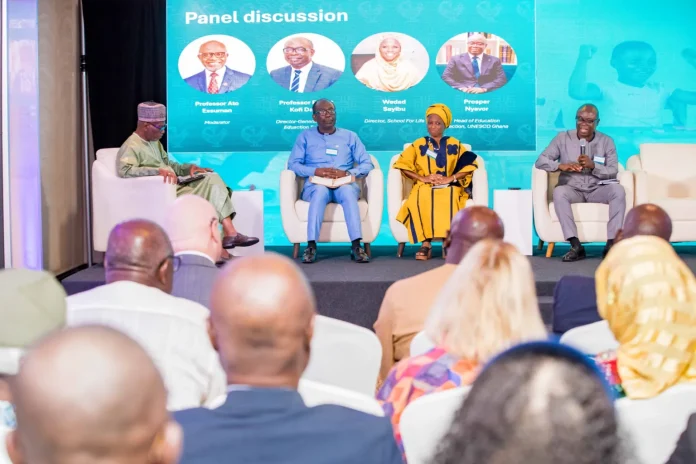
Director General of the Ghana Education Service, Professor Ernest Kofi Davis, has stated that Ghana’s learning crisis requires locally rooted solutions rather than externally driven approaches that ignore local contexts and teacher expertise.
Professor Davis made the remarks during a panel discussion at the launch of Professor Kwame Akyeampong’s book, co-authored with Dr. Sean Higgins, titled “Reconceptualizing the Learning Crisis in Africa: Multi-dimensional Pedagogies of Accelerated Learning Programs” at the Kempinski Hotel Gold Coast City, Accra, on Wednesday, October 22, 2025.
The GES chief acknowledged the severity of Ghana’s educational challenges, noting that significant numbers of students cannot read and write at appropriate levels. However, he criticized the tendency to import pre-packaged educational solutions without adequate adaptation to local realities.
Professor Davis specifically challenged the fidelity model of curriculum implementation, which requires strict adherence to prescribed materials. “We do not apply the enactment model, a model that gives teachers agency, respects their professional knowledge, and positions them as individuals who can provide meaningful feedback,” he explained. He argued that this approach unfairly blames teachers when outcomes fall short of expectations.
Language emerged as a central concern in the discussion. The GES Director General emphasized that education begins, progresses, and succeeds or fails through language. He questioned whether students truly have access to the curriculum when language barriers exist, despite high enrollment levels.
Addressing stakeholder involvement, Professor Davis emphasized inclusivity in defining quality education. He noted that learners, parents, communities, teachers, policymakers, and the global community should all contribute to shaping educational standards. Quality education must equip students with knowledge, skills, attitudes, and values needed to improve their lives and contribute to society, according to Professor Davis.
